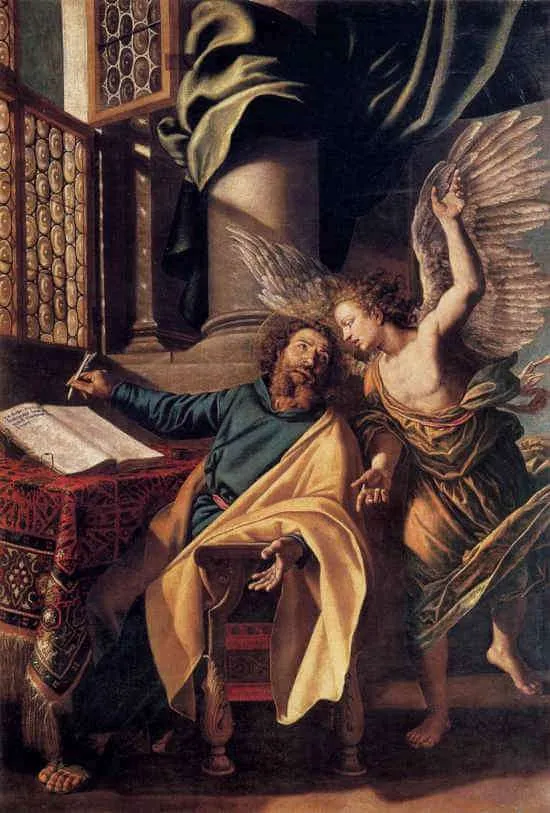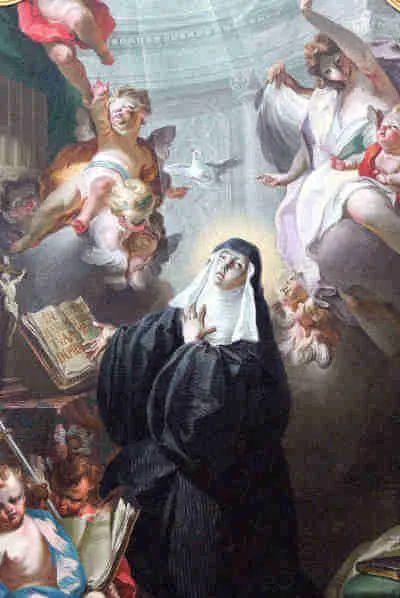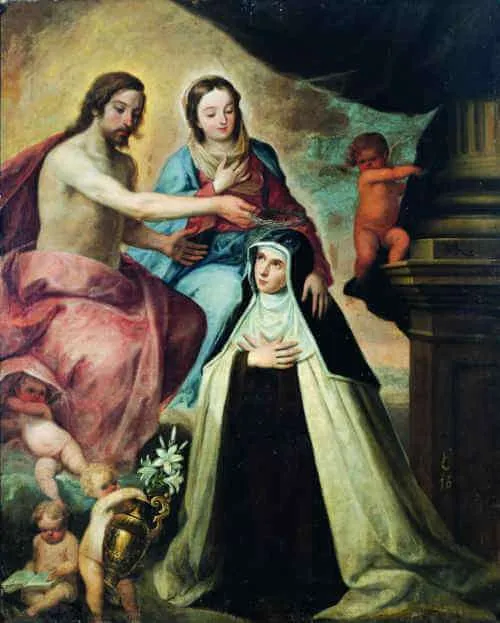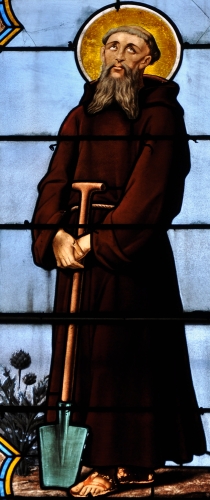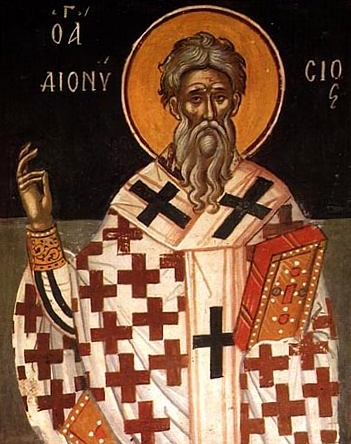First Century; Patron Saint of civil servants, accountants, bankers, bookkeepers, customs officers, financial officers, guards, moneychangers, money managers, stockbrokers, and tax collectors; Pre-Congregation canonization
At the time that Jesus began His public ministry, Galilee was part of the Roman Empire. Among the expectations of the Roman authorities was that all who lived under their rule pay taxes. To accomplish this, they often collaborated with local Jews, authorizing them to collect taxes on behalf of the Roman emperor and local governor. The rest of the community often despised the local tax collectors because they were seen as traitors to their people for entering into an oppressive collaboration with the Roman authorities. Even the tax collectors’ families were shunned. For example, their children were often seen as unsuitable as potential spouses. Additionally, many tax collectors were corrupt, imposing more taxes upon the people than they had a legal right to do. The Roman authorities usually overlooked this abuse because they often received a portion of the excess. The tax collectors pocketed the rest. It is within this context that today’s saint, Saint Matthew the Apostle and Evangelist, emerged.
Saint Matthew was most likely born as Levi, the son of Alphaeus. Though nothing is known about his childhood, Levi became a tax collector for the Roman authorities. The name “Levi” implies that he was from the Tribe of Levi, the tribe responsible for Jewish liturgical worship. Though scholars cannot arrive at a definitive conclusion about the details of his life, it is almost universally accepted that the Levi mentioned in Mark 2:14 and Luke 5:27 is the same person mentioned in Matthew 9:9 by the name Matthew. Levi might have been his original name, and Matthew may have been the name given to him by Jesus upon his conversion. The name Matthew means “Gift of Yahweh.”
Levi’s call to follow Jesus was short but profound. He was a man clearly weighed down by his decision to betray his Levitical heritage by working for the Roman authorities to collect taxes for them. He might have been corrupt, greedy, and ostracized by his Jewish community. Most likely, his tax collecting took place in Capernaum, where Jesus had been living in Peter’s home. His duties likely involved gathering taxes on goods that came to Capernaum by way of the Sea of Galilee, as well as collecting a toll from those who arrived in that city by boat. When Jesus began His public ministry, many people took notice. Though there is no biblical account of Matthew listening to Jesus preach prior to his being called, it is reasonable to assume that he did hear about our Lord, and possibly even listened to Him preach in Capernaum. Matthew’s Gospel relates the conversion of the tax collector this way, “As Jesus passed on from there, he saw a man named Matthew sitting at the customs post. He said to him, ‘Follow me.’ And he got up and followed him” (Matthew 9:9). There was no hesitancy. In an instant, the tax collector’s life changed.
Immediately after Matthew abandoned his occupation, he invited Jesus to dine at his house and Jesus accepted. Dining with them were other tax collectors and sinners. As a result, the self-righteous Pharisees quickly condemned Jesus for associating Himself with these men. Jesus, however, rebukes the Pharisees, saying, “Those who are well do not need a physician, but the sick do. Go and learn the meaning of the words, ‘I desire mercy, not sacrifice.’ I did not come to call the righteous but sinners” (Matthew 9:12–13).
Jesus’ call and Matthew’s response sent shockwaves through the rigid Jewish authorities. They had grown accustomed to making judgment and issuing condemnation. They were politically-minded powermongers who lacked hearts of mercy. When Jesus arrived and acted with mercy for sinners, desiring their conversion, the Pharisees opposed Him, but the sinners responded. Though tax collectors like Matthew were wealthy and lived comfortably, Matthew found something in Jesus that his money could not produce.
Throughout the rest of the Gospels, Matthew’s name is listed with the Twelve. He was present at the Ascension and at Pentecost where he received his commission and the outpouring of the Holy Spirit with the other Apostles. Early Church Fathers state that he remained for some time in Judea, preaching the Gospel and helping the newly formed Church. It is during this period that he might have penned his Gospel. It is also commonly held by the Church Fathers that Matthew eventually went to “Ethiopia,” but not Ethiopia in northeast Africa. Instead, he might have traveled to the territory south of the Caspian Sea, modern-day Iran or Armenia.
One legend holds that while in the territory of ancient Ethiopia, Matthew made many converts. Among them were King Egyptus and his whole household, including his daughter Ephigenia. Matthew is said to have consecrated Princess Ephigenia as a virgin and set her over a newly formed company of virgins who gave their lives solely to Christ as His spouses. When King Egyptus died, Hyracus succeeded him as king and wanted to take Ephigenia as his wife. After making this request to Matthew, Matthew invited the new king to church to be instructed in marriage. Once the king arrived in pomp and circumstance, Matthew preached clearly that the virgin Ephigenia already had a spouse, her Lord Jesus Christ, and that she could, therefore, marry no other. Outraged, King Hyracus sent an assassin who stabbed Matthew in the back and killed him while he stood at the altar. The king then ordered that Ephigenia’s home be burned, but the legend continues that Saint Matthew appeared at the house and redirected the fire to the royal palace, which burned down. Shortly afterward, the king was afflicted with leprosy and killed himself, and his son became possessed by demons but later repented at Saint Matthew’s tomb. After this, King Hyracus’ brother became king and established Christianity as the official religion of his kingdom.
The most enduring gift Saint Matthew left behind is his Gospel. Though some modern scholars question whether he was the original author, early Church Fathers attribute the first Gospel to him unequivocally. Matthew’s Gospel was written by a Jew for his fellow Jews. It was most likely written in Hebrew and Aramaic and later translated into Greek. The original Hebrew and Aramaic texts no longer exist. His Gospel clearly shows that Jesus is the fulfillment of the Old Testament, the long-awaited Messiah. He begins with a lengthy genealogy in which he traces Jesus’ roots back to Abraham, the father of the Jewish nation. Matthew’s Gospel is well structured and organized, offering five major discourses in which he presents the Kingdom of Heaven, the Church’s foundation on Peter, the call to righteousness and obedience to God’s will, unique parables, and the Sermon on the Mount. The Sermon on the Mount especially portrays Jesus as the new Moses, offering the New Law on the new mountain. Though Moses received the Law from God on Mount Sinai, Jesus gives the New Law as God Himself on the Mount of the Beatitudes.
As we honor Saint Matthew, we also celebrate the Gospel itself. Matthew was but a human instrument; the content of his Gospel is the Living Word of God. Ponder the inestimable value of this Gospel that God has used to transform countless lives. By his simple obedience to the will of God, Saint Matthew’s efforts have been exponentially fruitful and will continue to be so until the end of the age.
Source: https://mycatholic.life/saints/saints-of-the-liturgical-year/september-21–st-matthew-apostle/


